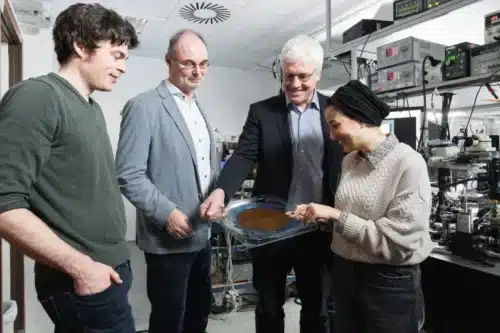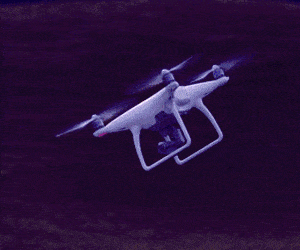Researchers at KIT, through the ATHENS project, are pioneering advanced optical transceivers to enhance AI speed and efficiency by integrating innovative material systems.

The Karlsruhe Institute of Technology (KIT) is leading an advancement in optical communication systems to address the growing data demands of artificial intelligence (AI). Supported by a €14 million European Research Council Synergy Grant, the ATHENS project is developing high-speed, energy-efficient transceivers using hybrid material systems. These advancements promise to transform fields such as AI, quantum technologies, and medical engineering.
The exponential rise in data usage has created challenges for industries relying on high-performance computing. AI applications, particularly large language models, require enormous computational resources and seamless communication between processors. Existing silicon-based transceivers, critical for converting electrical data into optical signals, are struggling to meet these demands efficiently. High energy consumption further compounds the problem, leading to increased CO2 emissions.
To overcome these limitations, ATHENS researchers are exploring hybrid material systems that integrate silicon with innovative compounds. The project’s implications are particularly significant for AI developers, telecommunications providers, and industries focused on medical diagnostics, where efficient data handling is crucial. “Our goal is to make transceivers not only more powerful but also more efficient,” explained Christian Koos, professor, KIT. Using methods such as computer simulations, organic molecules are designed with precision before being implemented in lab prototypes. “We can simulate these molecules on computers before producing materials with the characteristics we want,” added Stefan Bräse, professor, KIT, highlighting the project’s innovative approach.
Collaborating with experts from Friedrich Schiller University, Jena and ETH, Zurich, the team is advancing beyond traditional silicon components by creating crystal-on-insulator platforms and other material combinations. These platforms allow higher data transmission rates while reducing energy requirements, laying the groundwork for the next generation of optical communication systems.
The project also offers promising applications beyond AI, such as wearable health sensors and lab-on-a-chip devices for medical analysis. “This research enhances KIT’s outstanding position in photonics,” said Oliver Kraft, professor and vice president for research, KIT. By tackling urgent challenges in data communication, the ATHENS project is setting new benchmarks in material science and information technology.






